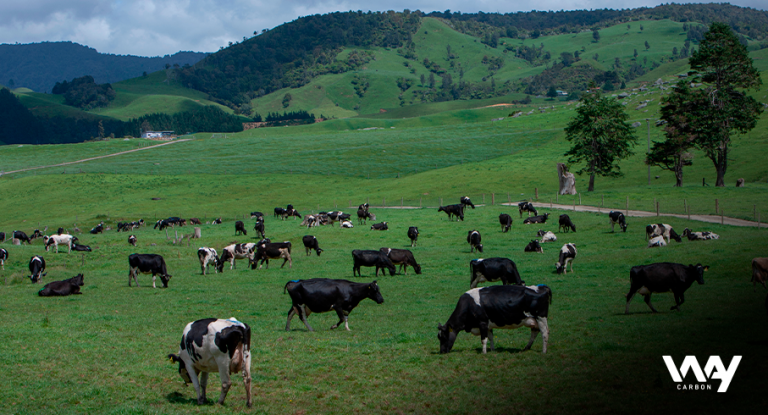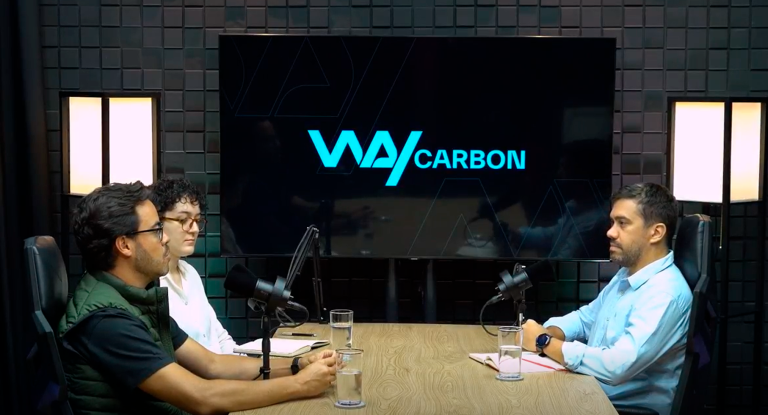LEBAM Program, innovation to reduce emissions from dairy farming

Agri-business (including dairy farming) is the second main source of greenhouse gas (GHG) emissions in Brazil. To address this issue, WayCarbon is developing an innovative program aimed at reducing methane emissions – a gas with a greenhouse effect 28 times greater than carbon dioxide – from natural rumination processes, the LEBAM Program (Leite Baixo Metano, Low Methane Milk in Portuguese).
Technology to reduce emissions from dairy farming
The initiative was born within our New Businesses team and is linked to the goal of being at the forefront of disruptive actions in carbon projects. To date, LEBAM is the only project in the world with the intention of reducing emissions in dairy farming with the Bovaer ® additive, from dsm-firmenich. The additive, when added to animal feed, has the capacity to reduce methane emissions by up to 30%, which corresponds to one ton per year of CO2e avoided per animal.
Our intention is to carry out a pilot with a limited number of dairy cows in Minas Gerais, Brazil, to test the market, as this is a relevant investment for viability. We already have 500 animal units that will receive the additive and we are working with the ambition of reaching 50 thousand animals in the country in the scale stage.
LEBAM aims to transform the sustainability approach in agri-business through the carbon market. One of the main reasons is that the additionality of projects present in the voluntary Carbon market is a frequent point of attention, and this Program is “pure additionality”. Being additional means that the reductions or removals would not have happened without the financial investment in the project in question.
Bovaer is a unique and efficient way to reduce methane emissions from livestock farming as it is simple to use, has no side effects and leads to a demonstrable reduction. The revenue from the sale of carbon credits from the project will enable the acquisition of Bovaer and will encourage producers to continue using the additive, as they will have discounts on dsm-firmenich lactation products, reducing the cost of milk production.
Due to its innovative nature and great delivery in terms of additionality, the carbon credit for this project will have an above-average price in the voluntary market. Even so, the expectation is that buyers are engaged in directing resources to the initiative, believing in the expansion of the project to make costs more competitive and, consequently, the price of the asset more affordable. We are currently signing the commitment with the first producers, preparing the public consultation and planning a launch event.
To find out more, contact our experts.
 EN
EN  ES
ES PT
PT





